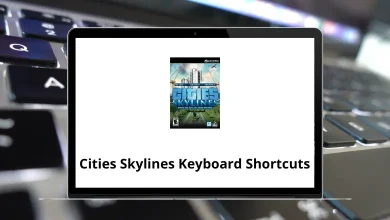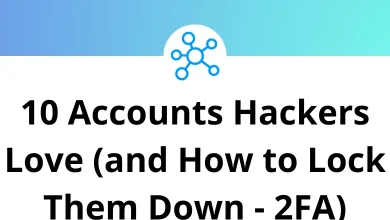How to Locate or Search People Online for Free
A Complete Guide
Finding someone online isn’t just for private investigators anymore the internet has made it possible for anyone to search for friends, family, classmates, or even business contacts (people) without spending a dime. Whether you’re trying to reconnect with a long-lost friend, verify someone’s identity, or just satisfy your curiosity, you have a lot of free tools and tricks at your disposal.
Table of Contents
- 1 1. Start with Search Engines
- 2 2. Check Social Media Platforms
- 3 3. Use People Search Engines (Free Versions)
- 4 4. Reverse Phone Lookup
- 5 5. Search by Email Address
- 6 6. Explore Public Records
- 7 7. Search Old Classmates and Alumni Networks
- 8 8. Use Online Forums and Communities
- 9 9. Tap Into Image and Video Platforms
- 10 10. Check Address and Property Databases
- 11 11. Leverage Professional and Trade Directories
- 12 12. Use Obituary and Genealogy Databases
- 13 13. Try Username + Keyword Combinations
- 14 14. Dig Into Archived Websites
- 15 15. Search Local News Archives
- 16 16. Check Community and Church Bulletins
- 17 17. Look for Mutual Connections
- 18 18. Use Free Background Check Previews
- 19 19. Combine Multiple Search Methods
- 20 20. Stay Ethical and Respect Privacy
- 21 Final Thoughts
In this guide, I’ll walk you through step-by-step methods to locate people online for free, using search engines, social media, public records, and more.
1. Start with Search Engines
The easiest starting point is often Google (or any other search engine). But a simple name search might return thousands of unrelated results. You need to search smart.
How to Search Effectively:
- Use quotation marks for exact matches: Example: “John Michael Smith”
- Add location or occupation to narrow results:
“John Michael Smith” “New York” “John Michael Smith” “photographer”
- Try reverse image search with Google Images or TinEye if you have a photo.
- Use Google advanced search operators like: site:linkedin.com “John Michael Smith”
Pro Tip: If your search brings up too many results, filter them by adding details like school, company, or hobby.
2. Check Social Media Platforms
Social networks are a goldmine for locating people. Even if someone’s profile is private, you can often find their picture, location, or friend connections.
Platforms to Search:
- Facebook – Use the search bar and filter by city, education, or workplace.
- Instagram – Search by username, hashtags, or mutual followers.
- Twitter (X) – Try searching by handle or keywords.
- LinkedIn – Perfect for finding professionals by name and industry.
- TikTok – Search by username or mutual friends’ followers.
Search Tip: If you know part of a username, use Google with: site:instagram.com “usernamepart”
3. Use People Search Engines (Free Versions)
Many people search sites have paid options, but their free previews can still reveal useful details like city, age range, and known associates.
Popular ones include:
- TruePeopleSearch
- FastPeopleSearch
- ZabaSearch
- That’sThem
- 411.com
4. Reverse Phone Lookup
If you have someone’s phone number, reverse lookup tools can help identify the owner.
Free tools:
- TrueCaller
- Whitepages (Free Lookup)
- NumLookup
- Sync.me
Tip: Paste the phone number into Google or Facebook search to see if it’s linked to any profiles.
5. Search by Email Address
Emails can often lead you directly to a person’s identity.
Methods:
- Google search the email in quotes: “[email protected]”
- Use Hunter.io or Clearbit Connect for professional connections.
- Check Gravatar (globally recognized avatar service) – many blogs and forums link emails to profile pictures.
- Try Pipl (limited free info) for cross-platform email checks.
6. Explore Public Records
Government and public databases often hold free information, especially in the U.S.
Examples:
- County Clerk Websites – Marriage, divorce, and property records.
- Voter Registration Databases – Sometimes publicly searchable by state.
- Court Record Portals – Check state court websites for legal cases.
7. Search Old Classmates and Alumni Networks
If you’re looking for a former schoolmate:
- Classmates.com – Free search for names in school yearbooks.
- Alumni pages on LinkedIn or Facebook.
- School websites with public alumni directories.
8. Use Online Forums and Communities
Many people use the same usernames across platforms.
Steps:
- Search their known username on Namechk or Knowem.
- Check forums like Reddit, Quora, or hobby-specific boards.
- Look at archived posts via the Wayback Machine.
9. Tap Into Image and Video Platforms
Sometimes you can identify someone from photos or videos they’ve uploaded.
Options:
- YouTube – Search by name or username.
- Flickr – Search photo tags and metadata.
- Google Images – Reverse image search.
10. Check Address and Property Databases
If you have a partial address, you can learn more:
- Google Maps Street View – See the property and surroundings.
- Zillow or Realtor.com – View public property details.
- County property tax assessor websites often have owner names.
11. Leverage Professional and Trade Directories
Some professions have public listings:
- State bar associations – For lawyers.
- Medical board websites – For doctors.
- Trade association directories – For skilled workers.
12. Use Obituary and Genealogy Databases
If searching for family connections:
- Legacy.com – Obituary records.
- FindAGrave.com – Cemetery records.
- FamilySearch.org – Public family trees.
13. Try Username + Keyword Combinations
If you know their online alias:
- Search: “username” “cityname”
- Add relevant hobbies or interests to the search.
14. Dig Into Archived Websites
If a person’s old blog or profile is gone:
- Use archive.org (Wayback Machine) to see snapshots of past content.
- Try cached versions in Google search.
15. Search Local News Archives
People often appear in news stories for events, sports, or awards.
- Use Google News search with their name in quotes.
- Filter by year to match the timeframe you knew them.
16. Check Community and Church Bulletins
Local organizations often post newsletters or event rosters online.
- Search: “John Michael Smith” site:.org
- Add location keywords to refine.
17. Look for Mutual Connections
Even if you can’t find someone directly, finding their friends or relatives can lead you to them.
- Search mutual friends on Facebook or LinkedIn.
- Follow tagging trails on Instagram.
18. Use Free Background Check Previews
Some sites offer a “teaser” view with limited info:
- Spokeo (partial details for free)
- Intelius (basic city and relatives info)
- BeenVerified (sometimes lists age and state)
19. Combine Multiple Search Methods
One search method may not be enough.
Example workflow:
- Start with Google + full name in quotes.
- Check social media for matching profiles.
- Use people search tools for age/location match.
- Reverse search any photos found.
20. Stay Ethical and Respect Privacy
While locating people online can be easy, it’s important to use the information responsibly:
- Don’t harass or stalk.
- Respect privacy settings.
- Avoid sharing personal info publicly without consent.
Final Thoughts
Locating people online for free is often about connecting the dots. A phone number might lead to an email, which leads to a social profile, which leads to an address. The key is knowing which tools to use, in what order, and how to interpret the results.
With patience and the right search techniques, you can often find someone without spending a cent whether it’s an old friend, a lost family member, or a professional contact.
READ NEXT:




